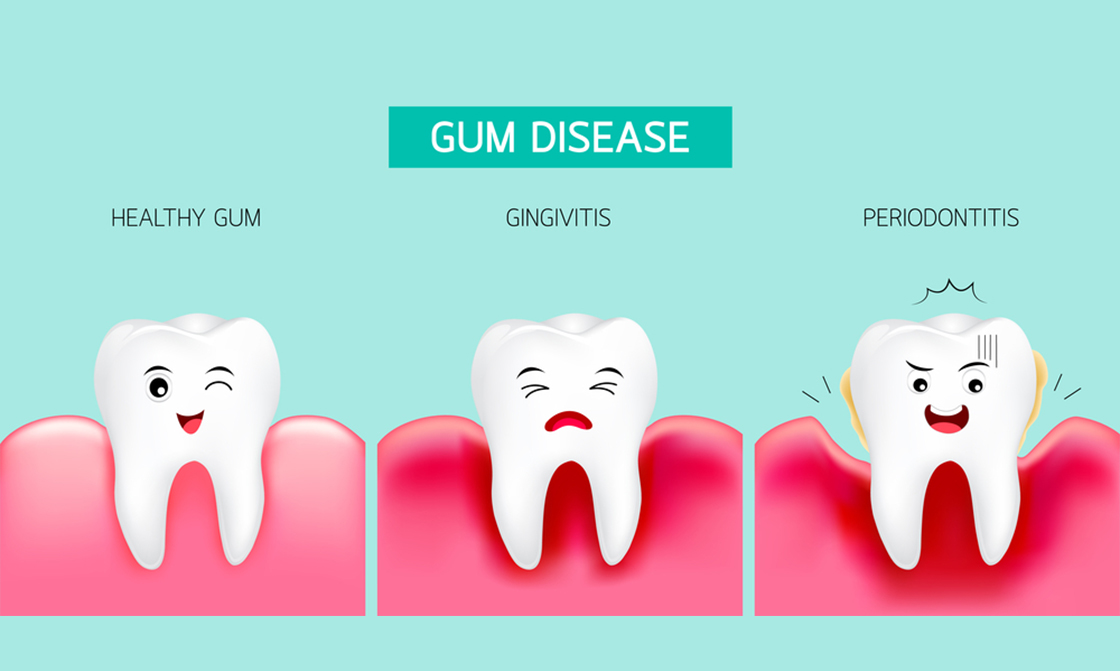Oral Hygiene
Healthy Gums
Your mouth needs to be cleaned properly so that your teeth and gums are free of diseases and other issues. The routine of taking care of your mouth can be referred to as oral hygiene. Maintaining good oral hygiene is beneficial for your mouth and also improves your overall health.
What Sets us Apart to other Practices
Maintaining Your Oral Hygiene
To keep your mouth healthy, everyone should practice a few easy steps regularly. Part of the oral hygiene routine is to remove the building up of plaque to keep your teeth and gums healthy. To do that you have to:
- For two minutes, twice a day brush your teeth. If you are unsure of the type of toothbrush that you should use, ask your dentist to recommend one.
- Floss your teeth daily. Flossing helps remove food particles that are stuck in between the teeth and below the gum line which cannot be removed by the toothbrush.
- Learn the correct technique of brushing from your dentist or hygienist. Do not brush too hard as it will damage your gums.
- Always use fluoride toothpaste to help to re-mineralise your teeth.
- Visit your dentist, i.e. twice a year for your regular check-up.

How To Know Your Gums Are Healthy
These signs will help you in identifying healthy gums:
- Gums should be pink in colour
- No area of the gum should feel tender or cause you discomfort
- While brushing or flossing there should not be any bleeding from the gums
- There should not be any inflammation or redness of the gums.
If you do not keep your gums and teeth healthy and remove the plaque every day, the build-up of it will lead to gum disease like Gingivitis.
What is Gingivitis?

Gingivitis is a gum infection that is caused when a natural sticky film known as plaque builds up on teeth. Plaque is typically collected in the gaps between the teeth and the gums and needs to be cleaned regularly. Without regular brushing and flossing, plaque build-up and increase as they feed on the sugar found in the drinks and food that sticks in your mouth.
Gingivitis can lead to issues like:
- Gums get sore, swollen, puffy and red
- Gum bleeding during brushing or flossing
- Discomfort and sensations on the gums
How to Identify Gingivitis?
The earliest and most common sign is the easiest one to identify. While brushing or flossing the teeth if your gum bleeds you need to go to your dentist. Gingivitis is a reversible disease that can be treated by your hygienist or dentist. Also, improving your brushing and flossing habit along with the use of fluoride toothpaste can prevent Gingivitis from progressing further. But it is vital that you get treatment as untreated Gingivitis will lead to severe gum disease known as Periodontal Disease.
What is Periodontal Disease?
The later stage of gum disease is termed as Periodontal Disease. In this stage, the bacterial infection that was initially affecting the outer layers of the gums progresses deeper, affecting the tissue and the bone that supports the tooth.
Identifying Periodontal Disease:
There are several symptoms like Gingivitis, but the condition is more serious.
- Bleeding from the gums and the teeth during brushing or flossing.
- Gums will be red, swollen and tender.
- Prolonged period of bad breath.
- Pocketing occurs, i.e. the gum pulls away from the tooth
- In the pockets around the tooth, pus may be seen
Periodontal disease is irreversible, but treating the infection will slow down the progression. A dentist and hygienist will recommend the steps to improve your overall oral health so that the bacteria do not thrive in your mouth. Proper treatment and oral hygiene will ensure that the bacteria that have been damaging the tissue that connects the gums to the roots of the tooth does not thrive anymore.
By maintaining your oral health, the pockets in which the bacteria thrive will stop progressing further hence the chance of your tooth falling out will lessen. If Periodontal disease goes untreated with time, the bone that anchors the teeth will be dissolved by the bacteria and eventually making the tooth loose and fall out.
It is hence vital that you take care of your oral health and visit your dentist regularly to see if you have any oral issues that can be prevented before it becomes severe.

“There is always a risk for any surgical or invasive procedure. Hence, before proceeding, we recommend you to seek a second opinion from an appropriately qualified health practitioner.”









